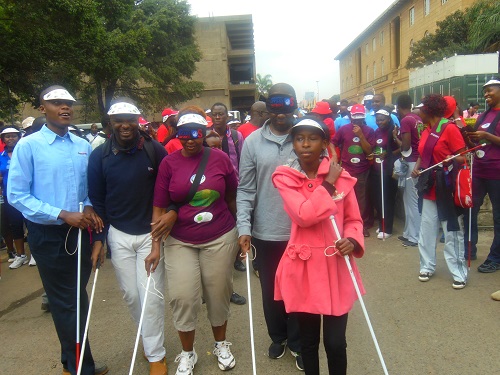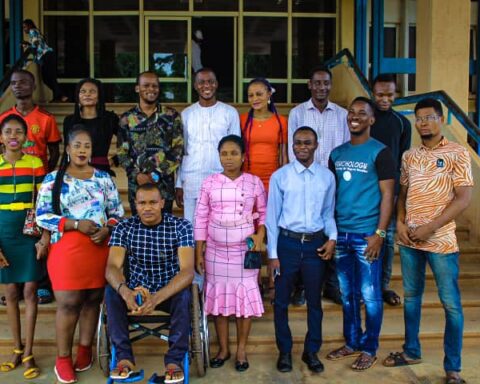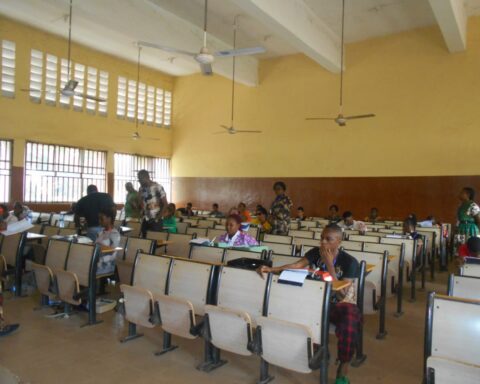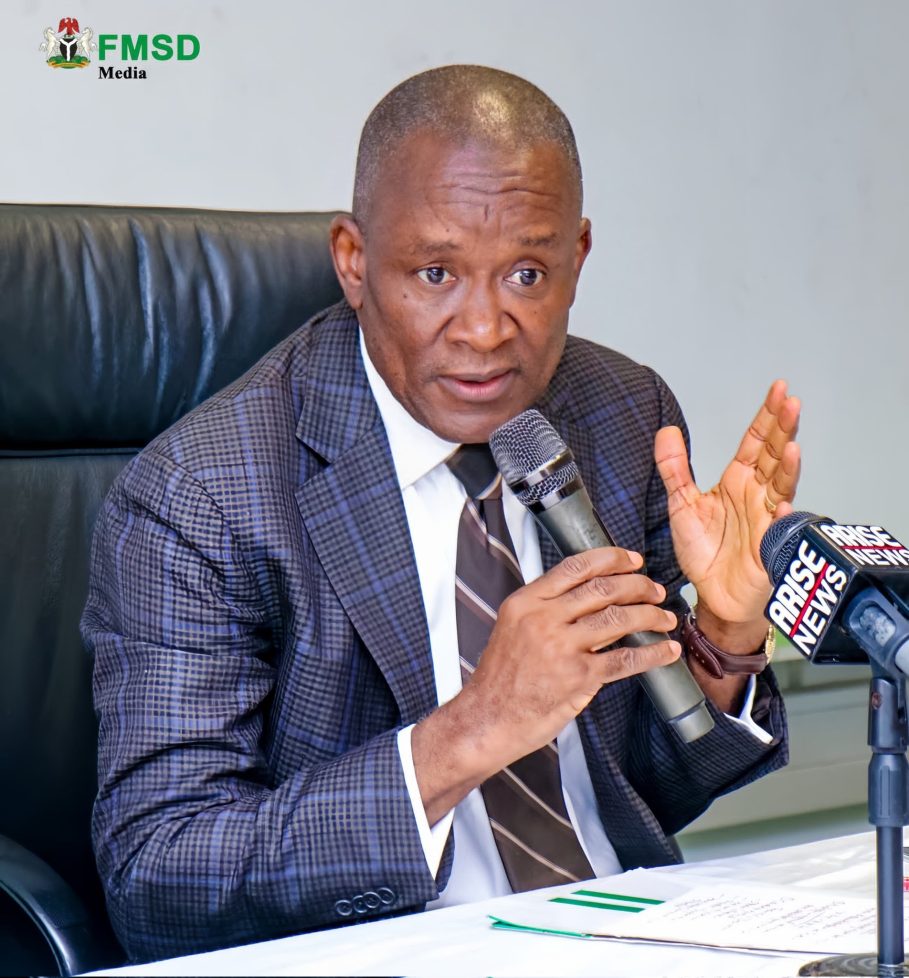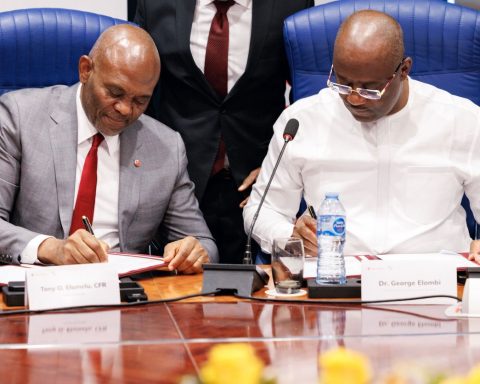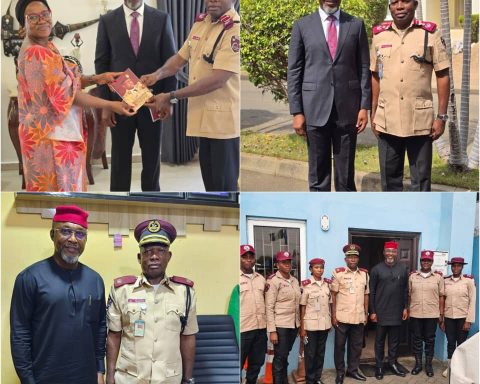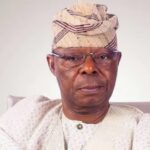As the sun rises in Nigeria, Sam, a visually impaired man in his thirties, prepares for another arduous day. With his trusty white cane in hand, Sam ventures out into the chaos of daily life, knowing all too well that his independence comes with limitations. His first prayer, though simple, reflects the reality of many like him: “God, Please send your Angels my way again today.”
Despite the Nigerian Disability Act being passed five years ago, which promised improved access to public spaces and transportation for persons with disabilities, Sam’s day begins with the same uncertainty. Standing on the edge of a busy road, he waits—not for the traffic to ease, but for a stranger’s kindness to guide him across.
Join our WhatsApp ChannelREAD ALSO: ‘No Justice Without Justice For People With Disabilities,’ Darren Walker, Ford Foundation President
Sam’s struggle doesn’t end when he makes it to the other side. Boarding public transport is often another ordeal. Buses remain crowded, and drivers lack awareness or sensitivity to his needs. Even the streets and bus stops around him, with their uneven curbs, obstructed sidewalks, and confusing layouts, present constant obstacles. His white cane, designed to empower and offer independence, often feels like a symbol of exclusion in a cityscape that wasn’t built for people like him.
“Sometimes, it feels like nothing has changed,” Sam says, reflecting on the half-decade since the law was passed. He explained that the story is the same old: “If you are not careful as a person with disability when plying these roads, you will be knocked down and nobody will even notice.”
“We were promised inclusion, but it seems we’re still waiting,” he said. Adding, “Only God knows when will we see a glimpse of a provision in that Act coming to life.”
In another part of the country, Grace, a determined third-year student at a university, faces her own struggles. Armed with her white cane, she tries to make her way across the busy campus—her journey interrupted by obstacles that should no longer exist. “Most of the buildings here aren’t accessible,” Grace shares, her frustration evident as she recalls the daily challenge of moving between lecture halls, supermarkets, and hostels.
Despite the law’s promises, Grace finds herself relying on friends and strangers to navigate the walkways and drain-infested paths. Accessible features like audible signals at crossings, structured landscapes, and well-marked routes remain non-existent in many parts of the campus. “I want to move independently,” Grace insists.
“University is meant to be a time where I grow and explore, but I feel stuck, always dependent on someone.”
She further explains that the hostel where she stays is nothing to be proud of. “There are electric cables lying around every room. Some of the guardrails even shock you if you hold them.”
“As a visually impaired person, this is a dangerous environment, but what can I do to change it?”
Her voice carries the weight of disappointment. “The Disability Act was supposed to change all of this, but so far, I haven’t seen much improvement. It’s like we are invisible.”
The Nigerian Disability Act: Five Years of Limited Progress
The stories of Sam and Grace paint a picture of ongoing challenges faced by visually impaired Nigerians, five years after the landmark signing of the Discrimination against Persons with Disabilities (Prohibition) Act by President Muhammadu Buhari in 2019. This Act, with its 58 sections and schedules, was designed to ensure the full integration of persons with disabilities into Nigerian society, making laudable provisions for their rights and privileges. It prohibits discrimination based on disability, imposes sanctions—including fines and prison sentences—on those who contravene it, and stipulates a five-year transitional period for modifying public buildings, structures, and vehicles to make them accessible to people with disabilities.
However, despite these provisions, on-the-ground changes have been slow. While the Act was meant to modify public spaces and transportation for the visually impaired and other people with disabilities, the reality is that many buildings remain inaccessible, and public transport systems are ill-equipped to accommodate their needs.
Stanley Onyebuchi, President of the Nigeria Association of the Blind (NAB), expressed his frustration over the lack of public awareness. “I have not seen anything from the Ministry of Information or the National Orientation Agency (NOA). It is like the government even forgot about the disability act,” he lamented.
Onyebuchi also pointed to the Federal Government’s recent purchase of over 70 hybrid Compressed Natural Gas (CNG) buses in August, which lacked any facilities for wheelchair users. “The government does not think of PWDs before making decisions. They bought buses that lack facilities for wheelchair users. And they want to be inclusive, how?” he questioned.
Disability advocate Daniel Isaiah echoed Onyebuchi’s concerns, criticising the lack of implementation of the Act’s provisions. “Nothing in the disability act is being implemented. I really don’t know what NCPWD is doing. That agency is just existing without real achievement from the disability act,” Isaiah remarked. The National Commission of Persons with Disabilities (NCPWD), established under Section 31 of the Act, was created to protect and promote the rights of persons with disabilities. However, Isaiah believes the commission has fallen short of its mandate.
Veteran blind journalist, Gbenga Ogundare, also voiced his disappointment in the commission’s performance. “The five-year moratorium for the implementation of the act is over, but NCPWD has not provided any concrete roadmap for institutions to work with,” he explained. “No institution should be held accountable for what is not their fault.”
Efforts to reach the NCPWD for a response to these concerns were unsuccessful, as no comment had been provided by the time of this publication.
The Psychological and Social Impact
Beyond the legal and infrastructural gaps, the lack of accessibility has deep psychological and social consequences for visually impaired individuals. Many have shared their struggles in daily activities, highlighting how they are often left out at work and how visiting public places like markets becomes a near-impossible task.
One visually impaired individual, who preferred to remain anonymous, described the overwhelming challenges of simply going to the market: “I can’t go to the market by myself. The roads are too chaotic, and the stalls aren’t structured in a way that makes navigation easy for someone who can’t see.” For many, this means relying on others for help, adding both financial and emotional burdens. “Being blind means double transportation costs,” said another individual. “Sometimes, you have to pay someone to take you to where you’re going. Even when you know the way, it’s not safe to go alone.”
The cost of mobility is not just financial but also psychological. While sighted individuals can reduce their transportation costs by taking shortcuts or more affordable routes, visually impaired people are often forced to take longer, safer paths due to the risks of navigating unfamiliar or unsafe areas. “There are routes I know will save me money, but I can’t take them because it’s risky without sight. I have to take the longer, safer route, which adds to my expenses and time on the road,” one individual explained.
These daily obstacles contribute to feelings of frustration and isolation. Inaccessible infrastructure in workplaces further exacerbates the situation. One worker admitted, “Sometimes, I feel left out at work because the facilities don’t consider someone like me. We’re not asking for much—just the basic infrastructure to live our lives independently, to get to work, to go to the market, without needing to depend on someone else.”
The emotional toll of constant dependency, combined with the financial strain of navigating inaccessible spaces, continues to erode the independence of visually impaired persons in Nigeria. Although the Disability Act was meant to provide them with equal access, the reality is that many continue to feel excluded, both in society and in the workforce.
The Need for True Inclusion
As Nigeria commemorates the 2024 White Cane Day, it is a moment to reflect not just on how far the country has come, but on how much work still needs to be done. The Discrimination against Persons with Disabilities (Prohibition) Act was a step in the right direction, but without proper enforcement and continued advocacy, it risks becoming another piece of legislation that looks good on paper but fails to create real change.
Section 6 of the Act clearly states: “From the date of the commencement of this Act, there shall be a transitory period of five years within which all public buildings and structures, whether immovable, movable or automobile, which were inaccessible to persons with disabilities shall be modified to be accessible to and usable by persons with disabilities.” Five years have passed, and yet many of these changes remain unrealised. Public spaces, universities, and transport systems continue to lack the necessary modifications, leaving persons with disabilities to fend for themselves.
“We need more than promises,” Sam says. “We need action. We need to be able to live in a world where we can move freely, without depending on the goodwill of others.”
Mr. Onyebuchi, on his part, lauded the efforts of NCPWD but urged them to do more. “NCPWD is doing well. They just launched the second scholarship scheme for persons with disabilities. That is good, but we need more things to be done.”
For Sam, Grace, and the millions of visually impaired Nigerians like them, the fight for inclusion is far from over. But on this White Cane Day, their stories serve as a powerful reminder of what true inclusion should look like—and a call for Nigeria to finally deliver on the promises of the Discrimination against Persons with Disabilities (Prohibition) Act.


